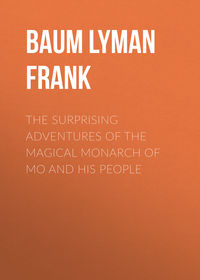
The Daring Twins
Marion had asked Phœbe and Janet to assist her to receive, for she did not know personally all whom she had invited, while the other girls were of course familiar with every young person in the village. There were no “regrets” that day, you may be sure, for the unusual occasion could not well be disregarded. Eric Spaythe came early, in an elaborate costume fresh from the tailor, and he paid especial attention to Marion whenever her duties left her disengaged. Al Hayden, Toby Clarke, Jed Hopkins and, in fact, every eligible youth in the village, assembled in bashful groups and looked nervously at the bevies of girls and upon their bewildering surroundings. In order to help Marion, Phil tried to “break the ice,” as he said, by bringing the boys and girls together, and when the band struck up a spirited twostep it relieved the strain to a wonderful degree.
Mrs. Randolph kept out of sight, indulgently viewing the scene from a window. Mr. Randolph had not appeared in Riverdale since he brought his family there and settled them in their new home. He was a busy man, with many extensive financial interests, and could not be away from Boston for very long at a time.
Donald, Becky and Sue had promptly joined Doris and Allerton, and as they were a little younger than the majority of Marion’s guests they formed a group of their own.
“It distresses me,” said Doris, plaintively, “to realize how many poor people are suffering, while we revel at this fête; and I cannot help thinking how many deserving families might be relieved from want by means of the money we are squandering to-day upon useless luxuries.”
“Aw, cut it out!” cried Becky, indignantly. “Do you want to spoil all our fun?”
“My sister is religiously inclined,” observed Allerton; “yet there is a place for everything, and this is not a funeral.”
“Oh, Allerton – how shocking!” exclaimed the girl.
“I don’t believe,” said Don, “you Randolphs would have spent a penny on the poor if you hadn’t given this party; so what’s the odds?”
It suddenly occurred to Becky that this wasn’t a proper topic of conversation under the circumstances, and might lead to a quarrel; so she turned the subject by asking:
“What’s in that red-and-white striped tent?”
“Lemonade and ices,” said Allerton. “Will you have some?”
“Sure thing!” was the reply, and away they went, to be served by a maid in a white cap and apron.
“Doesn’t it cost us anything?” inquired Sue, who found the lemonade extremely good.
“Course not,” returned Becky, helping herself again from the big bowl when the maid was not looking. “But if Doris had her way they’d collect a nickel a glass for charity, – the kind of charity that doesn’t help the poor a bit.”
“Let us go to the long tent, over there,” said Allerton, with eager patronage. “I’ll show you the big birthday cake and the tables all laid with favors and things. If we go in the back way no one will see us.”
Doris was not sure they were doing right to peep at the tables in advance, but as none of the others hesitated to follow her brother she decided to trail along after them.
It was, indeed, a pretty sight, and the Darings were awe-struck.
“When do we feed?” asked Don, hungrily.
“The collation is at half past six, I believe.”
“The what?”
“The collation.”
“Can’t you speak United States?” asked Don, indignantly; “or are you trying to poke fun at me?”
“If you are too ignorant to understand simple language,” retorted Allerton angrily, “you become an object of derision.”
Don glared at him.
“Take that back, you mollycoddle!” he cried, “or I’ll punch your head.”
“Better not,” warned Becky, composedly. “It isn’t polite at a party.”
“Take back your own words!” shouted Allerton, white with rage. “I’m no mollycoddle, and I’ll fight you now, or any time.”
But Doris, startled and dismayed at this disgraceful scene, put her hand on her brother’s arm and drew him away.
“Come, Allerton,” she said, with such dignity as she could command. “You forget yourself.”
“I won’t forget him, if he does,” promised Don.
“Don’t,” answered Allerton, moving away but still furious; “I’ll settle this with you some other time, when you are not my sister’s guest.”
Becky laughed and followed Doris, but outside the tent Allerton broke away from the group and went to nurse his grievances alone. Don was trying to think of a way to apologize to Doris when the girl gave him such a look of mingled scorn and reproach that he turned away, thrust his hands in his pockets and walked across the lawn whistling softly to himself.
“Never mind,” said Becky, with cheerfulness, “they’ll get over it in a minute. It isn’t any of our bread-and-cheese, anyhow.”
The incident, however, had disturbed gentle Doris greatly, and she was so silent and reserved that Becky and Sue soon left her to her own devices and set out to amuse themselves in any manner that might offer.
The band played stirring marches and gavottes. Laughter and merriment were everywhere. All stiffness among the guests seemed to have disappeared, for there were games of archery, lawn ten-pins, quoits and various other devices for the amusement of those assembled. Some of the girls had their fortunes told in the tent of a gypsy, while others watched a big paper balloon that was being sent up.
It was nearly seven o’clock when Marion gathered her guests in the banquet tent, and nearly all had found their places and were seated when in rushed Sue Daring, her white gown streaming all down the front with a sticky pink compound, and gasping with horror and despair she flew to her sister Phœbe, who stared in amazement.
“Keep off, Sue – keep off! Good gracious, what has happened to you?” Phœbe asked.
“I w-w-was helping myself to some l-l-l-lemonade, when the b-bowl tipped over an’ ducked me,” was the wailing reply, while Phœbe held her sister at arms’ length to protect her own dress.
There was a shout of laughter, at this, and poor Sue broke down and began to cry.
“I’ll take her home,” whispered Phœbe to Marion.
“Come straight back, then,” pleaded the hostess; “and have Sue come, too, as soon as she has changed her gown. There has been no harm done, except to the poor thing’s own clothing.”
“Yes, there has,” sobbed Sue. “I b-b-broke the bowl!”
Phœbe led her away, and soon Judith was exclaiming at the child’s dreadful plight. It was useless to think of her rejoining the party, however, for there was not another dress in her limited wardrobe that was proper for the occasion.
“Run back, dear,” said Cousin Judith to Phœbe; “your pleasure must not be spoiled, and I’ll look after Sue and comfort her.”
That was not so easy, for Sue’s disappointment was very poignant indeed. She knew it was her own fault, but that did not comfort her for missing the supper and the dance. However, Judith assisted her to exchange her sticky costume for a common gingham, and to wash all traces of the deluge of lemonade from her face and hands. Then she sat in the Little Mother’s window and listened to the shouts of laughter and the music of the band and gazed at the myriad of twinkling lanterns – and was more miserable than she had ever been before in all her life.
Phœbe had soon rejoined the company and was now participating in the fun. Sue’s accident had rather tended to increase the jollity than otherwise, and was soon forgotten. There were pretty favors for each guest, and as a finale to the delicious supper they all ate some of Marion’s birthday cake and wished her many happy returns of the day. Eric made a little speech which was witty enough to set them all laughing, and Marion thanked the company very modestly for their kind expressions of good will.
Donald sat opposite Allerton at the feast, and the two glared at one another viciously, to Becky’s secret delight.
“Al’s getting to be quite decent,” she whispered to her brother. “I wouldn’t be s’prised if he’d really fight.”
After the banquet came the dancing, and when the guests left the tent to indulge in this amusement they found themselves in a veritable fairyland. For the lanterns had all been lighted while they feasted, and the scene was beautiful beyond anything they had ever before witnessed.
The cards had said: “until nine,” but it was quite ten o’clock when the Darings returned home, eager and excited, and breathlessly recited their experiences to their smiling Little Mother. Sue had insisted on sitting up to hear all about the affair, and the glowing reports made her more miserable than ever.
“Did you have a good time, Don?” she asked, wistfully.
“Oh, so-so,” he replied. “It was a pretty fair show after I got rid of the mollycoddle.”
“That’s the biggest word Don knows,” laughed Becky; but neither she nor Sue betrayed the boy’s quarrel with Allerton.
CHAPTER XII
A BATTLE ROYAL
That night was another wakeful one for Phœbe. She had thoroughly enjoyed the lawn fête, but it left her too nervous for peaceful slumber until her pulses had calmed down and she was enabled to regain her accustomed composure. She went to bed, but not to sleep, and after the house became quiet she lay thinking over the incidents of the evening.
Gradually peace came to her. She was really tired, and the somnolent thrall of midnight was making her drowsy when she was roused by the movements of old Elaine in the next room.
It had been nearly a week since she had removed the board over the transom and prepared her peephole, but during that time the housekeeper had remained quiet, or at least Phœbe had not heard her. To-night the stealthy sounds began again, and after listening a few moments the girl softly arose, drew the table to a position before the door and mounted upon it.
She tried to be quiet, but probably she made some sound in these preparations, for scarcely had she slid the corner of the board away, to look into the next room, when the light which faintly illumined it was suddenly extinguished.
Phœbe stood motionless, waiting. Elaine, doubtless alarmed, did not stir for a long time. The old woman may have scented danger without realizing in what manner it threatened her, but her caution was excessive. At last, Phœbe heard her breathe a low sigh and then patter softly across the room to her bed and lie down.
The seance was over for to-night, without doubt. Exercising great care, the girl noiselessly descended from her perch and, tiptoeing to bed, composed herself to slumber.
Next morning, in considering the night’s occurrence, she decided to leave the table where it stood – before the door – and to place a chair beside it so she could mount noiselessly at any moment. It was several days, however, before Elaine recovered from her fright or suspicions, and during that time no unusual sounds came from her room.
It rained the morning after Marion’s party, and Phœbe was curious to know if all the pretty lanterns had been wetted and destroyed. But, on looking across at the lawn she discovered that every trace of last night’s festivities had been removed by the servants. Tents, lanterns, band stand, all had been taken away as soon as the guests had departed, and the Randolph grounds were as trim and orderly as before.
The children resented the rain, for it kept all of them except Phil, who was at work, cooped up in the house until after dinner. Judith found time, during the dreary forenoon, to tell them some stories and to talk over with them once again the adventures of the lawn fête, which still occupied their minds.
When, at last, the rain ceased and the bright July sun came out of the clouds, they greeted it with genuine relief and joyously scattered in all directions.
Don, deserted by Becky, who had to go to Miss Gray’s for her music lesson, walked out to the street and found Allerton promenading up and down the opposite sidewalk, his head bowed and his hands clasped behind his back – as an old man might have strutted. The sight awakened Don’s slumbering wrath and he called out:
“Hello, mollycoddle! What are you up to?”
Allerton straightened up and glanced across the street.
“Oh, it’s you,” he said. “Are you ready for your thrashing?”
“Yes. I dare you to come over here,” responded Don, promptly.
“If you want your punishment, come and get it!”
“You’re afraid,” sneered Don.
“It isn’t that,” replied Allerton. “I haven’t my gloves here, and I dislike to soil my hands.”
Don glared at his neighbor’s spick and span apparel, and the sight of the “dandy” made him still more combative. Allerton was the biggest and strongest, perhaps; but he was nearly a year younger than Don, who had no thought of his own disadvantage. In that mood he would willingly have fought a giant.
“I dare you to come half way,” he challenged, and as the other boy hesitated, Don advanced along the muddy crossing at the corner until he was at about the middle of it. It was an old board crosswalk, and just beyond where Don stood it was so low that the thin mud of the street had spread a layer over it.
This it was that caused Allerton to hesitate. He had a natural regard for his polished shoes and carefully brushed clothes and, while fully as eager for the fray as Donald, he would have preferred a more suitable place to fight.
The taunts of young Daring, however, were not to be endured. It was really necessary to teach impolite Donald a lesson he would remember. So Allerton attempted the crossing.
When he came to the muddy section he halted.
“Come on, then!” he exclaimed.
“This is half way,” said Don. “Come on yourself.”
“You back down, do you?”
“No, I don’t back down. You’re the coward, Al.”
“Coward!”
“That’s what I said.”
It was too great an insult for Allerton to brook. With doubled fists he advanced upon the eager, slender boy awaiting him. Don staggered under a heavy blow received full upon the chin, and then his own fist shot out and struck Allerton’s chest.
To his amazement it was “a knockdown.” Young Randolph’s feet slipped on the slimy crossing and he fell backward full length in the soft mud of the road.
With a roar of rage and chagrin he scrambled to his feet, and Don planted another blow that sent him to the mud again. It was not a hard blow, by any means. It seemed as though a mere touch was sufficient, for Allerton’s feet were now so covered with mud that he could scarcely stand upon them. A push from Don sufficed to upset him, and observing the ease of the operation Don repeated his blow each time that Allerton arose, laughing gleefully at the result of his own prowess. In the heat of the encounter, however, he neglected to keep his own footing on the cleaner and safer portion of the boards, so that in one of Allerton’s falls his arm struck Don and sent him likewise sprawling in the sticky mud.
They sat up and looked at each other in bewilderment. Allerton had never been so astonished in his life as at his present misadventure, and now, as he saw one side of Don’s head plastered with mud, which filled an ear and an eye, he burst into a hearty laugh.
Don scraped the mud out of his eye, blinked at his antagonist, and laughed too.
“Guess honors are about even, Al,” he said. “I’ve had enough. Have you?”
“Plenty,” declared Allerton, making an effort to rise from the puddle. Don managed to find his feet after a severe struggle.
“My, but you’re a sight!” he exclaimed.
“So are you,” replied Allerton, cheerfully. “We both ought to be ashamed of ourselves.”
“I – I’m afraid Cousin Judith will scold.”
“Well, I’m certain to catch it, all right. So long, Don.”
“So long, Al. Let’s go down town, after we’ve dressed.”
“All right.”
Thus the fight resulted in amity; but Don was dreadfully humiliated when he had to face the Little Mother in all that mess. He took off his shoes on the porch and humbly made his way up stairs to knock at Judith’s door.
“I – I’ve fallen down in the mud,” he called to her. “May I put on my best suit?”
Miss Eliot had been a witness of the entire scrimmage from her window, and had even overheard the words that had preceded and provoked the fight. She had decided not to interfere, but now she answered in a frigid voice through the closed door:
“No, Donald. I cannot have your best suit ruined.”
“But what shall I do, Cousin Judith?”
“You must go to bed until the mud on your clothes dries and they can be properly cleaned.”
Donald stood silently in the hall, his face flushed red with humiliation. He waited a long while for Cousin Judith to speak again, but she remained silent. At last he crept away to his own room, removed the disreputable garments and examined them dolefully. Coat, trousers, shirt, stockings – all were alike plastered with thick layers of fresh mud. It would take them a long time to dry, he feared.
With a sinking heart he put on his pajamas, having first washed himself clean, and then sat down to consider his dismal fate.
“It was a pretty good fight,” he mused; “but fighting don’t seem to pay, somehow. I wish I had let Al alone. He isn’t so much of a mollycoddle, after all.”
Finally, he thought of Aunt Hyacinth, and resolving to appeal to that faithful friend he crept down into the kitchen and begged her to help him. Aunty looked the clothes over in dismay, saying:
“’Tain’t no use, Marse Don. Dat ’ar mud won’t dry ’fore mawnin’, nohow. I’ll do mah bes’, honey; but I neveh seen sich a mess in all mah bohn days!”
With this verdict Don was forced to be content. He had a notion to appeal to Cousin Judith again, but could not muster the courage. So he got a book, lay down upon his bed and passed the rest of the afternoon in abject misery.
CHAPTER XIII
PHIL MAKES A DISCOVERY
Eric came to the bank a little late on the morning following the party, but as soon as he had joined Phil at the high desk which they used in common he began to sing the praises of Marion Randolph.
“She isn’t a raving beauty, Phil,” he said, “and until now I’ve always hated the sight of any girl that wears glasses; but Marion’s a crackerjack in some ways. She’s got a wad of money, for one thing – or her old man has, and that’s just the same.”
“I suppose Mr. Randolph is a very wealthy man,” remarked Phil, who disliked to discuss Marion with his friend.
“Wealthy!” cried Eric; “why, Randolph’s the head of the big Boston bond syndicate. He’s one of the slickest financiers in this country. Look here, Phil,” turning to a page in the ledger; “just notice this entry. When Mr. Randolph came here with the family, he deposited in our bank ten thousand in cold cash. He and Mrs. Randolph may both check against the account, but you see she’s only drawn a little over a thousand dollars, so far. That’s the sort of a customer we like, and if Mr. Randolph can let ten thousand lie idle in a country bank he must have scads of money.”
Then Eric discussed the elaborate entertainment of yesterday and dwelt perpetually upon the money the Randolphs must be possessed of, until Phil was thoroughly annoyed.
“What does it matter, Eric?” he said. “Money can’t buy everything, in this world.”
“What can’t it buy?” demanded Eric, astonished.
“It can’t buy happiness, or health, or – ”
“That’s rubbish, Phil. Give a fellow plenty of money and he’s bound to be happy; he can’t help it. And as for health, money gets the best and most skillful doctors and surgeons in the land, and they’ll cure a rich man where a poor man will die. There isn’t anything, old man, that money won’t do.”
“Then you ought to be satisfied, Eric. Your father is the richest man in Riverdale, except perhaps Mr. Randolph, and you are his only child.”
“Oh, it’ll come to me in time, I guess,” returned Eric, carelessly; “but just now the gov’nor holds me in pretty tight lines. How in blazes can he expect a young fellow to live on my salary? Why, it’s preposterous!”
Phil did not reply to this. It was none of his business.
In some ways this association with Eric was not of the most pleasant description. The two boys had grown up together in the village and had always been friends in a way; but now that Phil was thrown more closely into Eric’s companionship he discovered many traits in his nature that did not seem wholly admirable.
The older boy was a persistent cigarette smoker, and laughed at Phil for refusing to imitate him.
“I’ve tried it,” said Phil, quietly, “but I don’t like the things. To me there’s no fun in smoking.”
After office hours Eric often pleaded with Phil to go to the hotel and play pool with him. Mr. Daring had always had a pool and billiard table in a large room in the attic of his house, and he had taught all his children to play. None of them, however, cared especially for the amusement, and his father’s wisdom was evident when Phil now revolted from a game at the hotel.
“I’m not a good player, Eric,” he said, “and I can’t imagine anyone loafing in that grimy, smoky room just to play a game of pool. What’s the fun in it?”
Mr. Spaythe strongly objected to billiards and pool. He had even reproved Wallace Daring, at times, for having a table in his house. Eric had been sternly forbidden to play, and for that reason those stealthy games at the hotel possessed for the young man the attraction of forbidden fruit.
“Fun!” he retorted; “why, there’s lots of fun in pool. We play for the drinks, you know, and I can beat nearly every fellow in the village. When the farmers’ sons come in, they’re dead easy; there are always some of them around the hotel, and they’re proud to play with me because I’m the banker’s son.”
“Then play with them,” advised Phil. “I don’t drink, as you know, and I’d be poor company for you.”
Eric shook his head sadly.
“You’ll never amount to much in the world, Phil, with those namby-pamby ideas of yours.”
“I don’t consider them namby-pamby ideas, Eric; I simply don’t care for the things you do.”
“The good die young.”
“Oh, I’m not so good as to be in any danger,” laughed Phil. “I imagine I’m pretty full of faults, Eric, and you mustn’t quarrel with me because my faults are not the same as your own.”
After a time young Spaythe refrained from urging Phil to join in his amusements; but he seemed not to be offended and proved genial enough as they worked together at the bank. The two young men occupied a large room at the rear of the neat, one-story brick building. They worked perched upon high stools at a big double desk, where the books were spread out. Behind them was the grim, austere safe which was the repository of so much specie that Phil’s brain sometimes whirled at sight of the heaps of gold and bank notes. Mr. Spaythe’s private office was in front, and beside it was the brass-railed coop where Mr. Boothe sat all day dispensing or receiving money according to the requirements of the customers.
The cashier could not overhear their conversation, if the boys spoke moderately low, and he paid no attention to them, anyway, and seldom even glanced toward them.
“I’ve invited Marion to the boat race,” said Eric one day, soon after the party. “Are you going to pull stroke for our crew, Phil?”
“I suppose so.”
“Do your best, then, old man. I’m going to bet heavily on our crew.”
“I wouldn’t, Eric.”
“Why not?”
“The least little accident decides a boat race.”
“I’ll risk it. We’ve defeated Bayport two years running, and we’re due for a third victory. As a matter of fact, I’m just forced to tie to this race, Phil, and win some necessary money. I owe about everybody in the town, and some of them are getting impatient to see the color of my money.”
Phil knew this was true, and did not care to reply. After working silently for a time he said:
“Eric, didn’t Samuel P. Martin deposit $380 yesterday?”
“No. It was $280.”
“Where’s the slip?”
“Put away, somewhere.”
“But, I’m sure it was three-eighty. I heard him say he wanted four hundred for his team, and threw off twenty dollars in order to make the deal.”
Eric looked a little annoyed.
“I entered two-eighty on the books, didn’t I?” he asked, scowling.
“Yes; that’s what surprised me.”
“Well, then the entry must be correct.”
“I’ll ask Mr. Boothe.”
“Let him alone. It’s my affair.”
Phil said no more, but was still puzzled. When he came back to the bank after dinner he saw that Eric had laid a deposit slip on his desk. It showed that Samuel P. Martin had deposited $280 in Spaythe’s Bank. Phil thought the ink appeared to be quite fresh.









